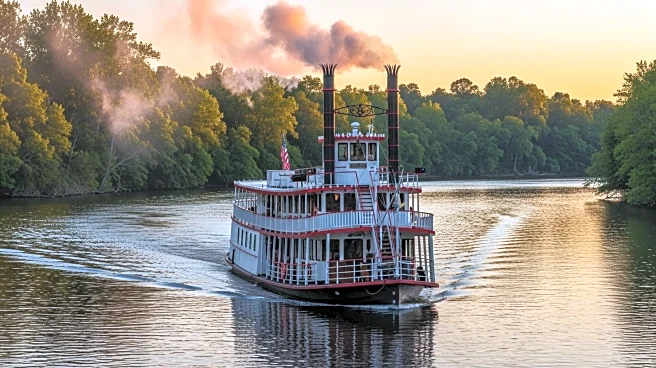What's Happening?
Morgan & Morgan, a prominent personal injury law firm, has filed a lawsuit against Disney seeking a legal ruling to use 'Steamboat Willie' in its advertisements without facing trademark infringement claims. 'Steamboat Willie,' a 1928 animated short film, marked the debut of Mickey Mouse and Minnie Mouse. The copyright for the film expired last year, prompting Morgan & Morgan to reach out to Disney for assurance against potential legal action if they used images from the film in their ads. Disney's legal team declined to provide such assurances, leading the law firm to pursue a court decision to preemptively address any trademark disputes. The lawsuit was filed in a federal court in central Florida.
Why It's Important?
This legal action highlights the complexities surrounding intellectual property rights, particularly when iconic cultural symbols are involved. The outcome of this case could set a precedent for how expired copyrights are treated in relation to trademark protections, potentially affecting numerous industries that rely on historical or iconic imagery. For Disney, the case underscores the challenges of protecting its brand while navigating the expiration of copyrights on its early works. For Morgan & Morgan, a favorable ruling could enhance its marketing strategies by leveraging a well-known cultural icon, potentially increasing its visibility and client base.
What's Next?
The court's decision will be closely watched by legal experts and businesses alike, as it may influence future cases involving expired copyrights and trademark claims. If Morgan & Morgan succeeds, other companies might be encouraged to use similar strategies to incorporate iconic imagery into their marketing efforts. Conversely, a ruling in favor of Disney could reinforce the company's ability to protect its brand through trademark law, even after copyrights expire. Stakeholders in the entertainment and legal industries will likely monitor the proceedings for implications on intellectual property rights management.
Beyond the Headlines
The case also raises questions about the balance between cultural heritage and corporate ownership. As more early 20th-century works enter the public domain, the tension between public access and private control of cultural icons is likely to intensify. This lawsuit could contribute to ongoing debates about the role of intellectual property laws in preserving cultural history while respecting corporate interests.










